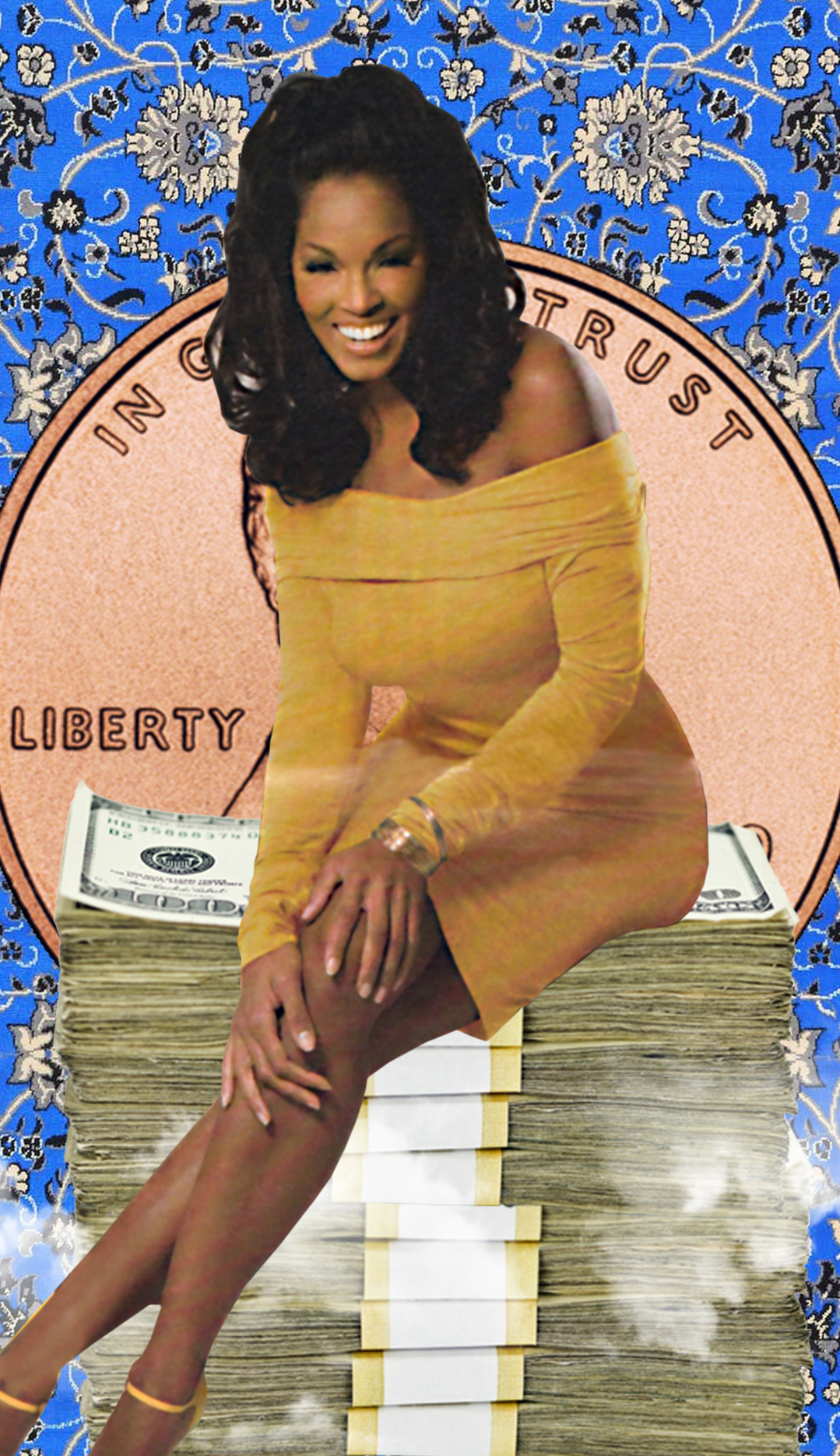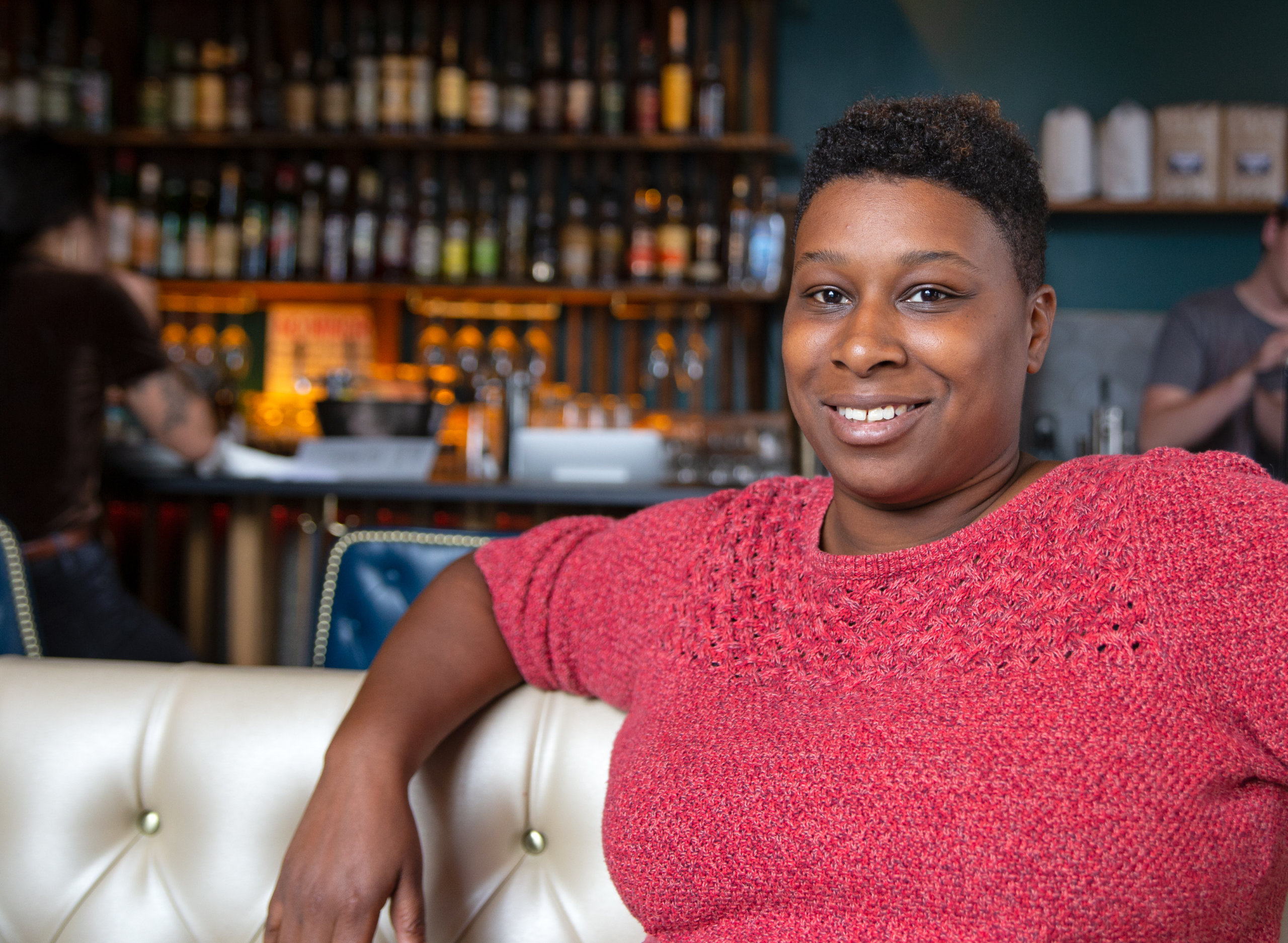
Own Your Own
When I was in high school, my dad, a veteran and long-time federal government employee, made clear my post-graduation options: Pay rent to continue to live at home. Move out. Start a business. Or go to college.
He was probably serious, but daddy’s girl that I am, I always took the first two options in jest. I didn’t see entrepreneurship as a realistic option either. I wasn’t aware of anyone who owned a business—person of color or otherwise. I didn’t have a business idea or the slightest idea of what goes into a business plan. I didn’t know the steps required for taking a concept to an actual, fully realized and successful business. Although I figured I needed money to get going.
Back then, the overwhelming message I received at home, at school and in the world around me was that college, grad school, and a stable, well-paying job were the keys to attaining financial comfort and stability approximating the “American Dream.” I hadn’t developed the entrepreneurial maturity, growth mindset or confidence to start my own business, so I decided to go to college. It was a safe and conventional choice I don’t regret. But what I know now that I wish I had understood back then is this:
If you’re Black or any other person of color and you’re working toward someone else’s dream instead of your own, you’re building their wealth at the expense of yours.
Seasoned entrepreneurs and small business development wonks likely already know what I just learned a few months ago, as described by Gary Cunningham, president and CEO of Prosperity Now, a Washington, D.C..-based national organization that helps low-income people build wealth and assets:
“You can start where you are with what you have; your mindset, ability to persist and to learn as you progress in your entrepreneurial journey will be the key-perhaps even more than money-to unlocking your professional and financial freedom.”
– Tiara Darnell
“Small business ownership equalizes the playing field between people of color and white people in terms of building wealth,”color and white people in terms of building wealth,” said Cunningham. “30 percent of Americans are asset poor… meaning ‘Do you own a home? Do you have investments? In emergency… do you have enough savings that you could make it for a three-month period?’ So many Americans don’t, and if you’re a person of color that number goes up [north of] 70 percent… [But] if you’re a successful Black entrepreneur, your assets have the potential to increase by over 400 percent versus a non-entrepreneur.”
Digest that. And for the uninitiated, chew on this, too:
For its 2018 Millennial Survey, UK-based Deloitte, the largest professional services network in the world, surveyed 10,455 millennials and 1,844 members of Generation Z across 36 countries and determined 43 percent of us plan to quit our current jobs in the next two years. Why? The flexibility and viability of a gig economy-based job (or jobs) is far more attractive than traditional full-time employment.
This isn’t surprising considering feelings of disillusionment and lack of fulfillment in nine-to-five jobs are a hallmark of both the millennial and Z generations. So often in our society and professional culture, the amount of “grit” a person has and the amount of “hustle” they perform for others are held up as indicators of their future professional success and therefore how far they’ll go in life.
However, Portlander Stephanie Dunker, owner and founder of Myal Medicinals, a medicinal (“and magical”) apothecary specializing in tinctures and other healing products, is a perfect example of what can happen when someone with grit, hustle and a come-up mindset redirects her energy to serve her own vision.
“I was vending… next to an older, African woman selling essential oil, and she mentioned my prices being too low. I said it was just a hobby business, and she responded, ‘You mean to tell me if you could do this full-time and make enough to live comfortably, you wouldn’t?’” Stephanie recalls. “It got me thinking about my long-term goals; I’m not the kind of person who can work for someone else indefinitely. I need my freedom.”
What’s the cost of that freedom? Although the overwhelming consensus is that funding or capital is vital to starting up a business, it wasn’t for Stephanie. While she still maintains several part-time jobs to supplement her income as she works to take Myal to the next level, she says her start-up costs were pretty low.
While startup money is never a bad thing, a study published in January 2019 by Kabbage, an Atlanta-based global online financial and tech company, revealed that among 600 “thriving” small business owners surveyed, 58 percent started with less than $25,000 and one third started with less than $5,000. The report noted that of the respondents surveyed, 65 percent admitted they were not fully confident they had enough money to start their business. The overwhelming majority—93 percent—calculated a run rate or financial performance forecast shorter than 18 months; 25 percent calculated a run rate of less than six months, and 36 percent didn’t create an outlook at all.
Most fascinating, Kabbage reports that 82 percent of those surveyed had no doubt “they had the right qualifications and proper experience to run a company, and all are successfully in operation today.”
So, would-be entrepreneurs of color, this is your call to action. Millennial, Gen Z or otherwise, start at any age. Look no further than the pages of this magazine and the businesses in the Mercatus Directory for inspiration.
You can start where you are with what you have; your mindset, ability to persist and to learn as you progress in your entrepreneurial journey will be the key—perhaps even more than money—to unlocking your professional and financial freedom.
Let go of the idea that you must work for someone else until you can afford to retire. Deviate. Those who are able and have the power to do so should not only fund us, but come with their contacts, guidance and wisdom too, And the numbers are on your side; your return on investment in yourself and your vision will pay dividends. Provide goods and services that solve a problem. Stick with it and watch over time as your business grows and you begin to solve the problem of your individual relationship to the wealth disparity. Own your own, and you’ll own your freedom.

If you’re [a] person of color and you’re working toward someone else’s dream[..], you’re building their wealth at the expense of yours.

- Tiara Darnell
Related Articles
Related
Hey Doc
“Hey Doc Clinic specifically is looking to center the queer, trans, and BIPOC communities. Basically what we’re saying is that this is a safe space.” Montserrat Andreys | Founder Hey Doc Storytellers Story Credit: Red...
Yancy Handmade
“I want to sell you a piece of art, and for you to know who is behind this product, who is the artist, to show you the significance of it, for you to love the product and understand the culture behind it.” “Yo quiero venderte arte, y que usted sepa que es lo que hay...
Blind Insect Gallery
“You have five seconds to rent a space in another person’s brain,” Pepe Moscoso Pepe Moscoso | Founder Blind InsectHOW TO SELL MAGIC TO THE WORLD “You have five seconds to rent a space in another person’s brain,” Pepe...
